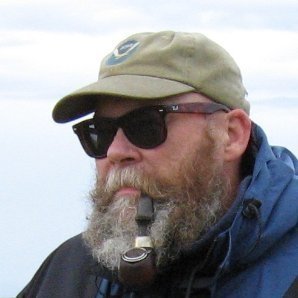Hér má nálgast námskeiðslýsingar allra námskeiðanna sem í boði eru. Einnig má sjá skipulag námsins í sameiginlegri kennsluáætlun Sjávarbyggðafræði og Haf- og strandsvæðastjórnunar.
Námskeiðin uppfylla kröfur ýmissa stéttarfélaga um námsstyrki. Vor- og sumarannir eru tilvaldar fyrir háskólanemendur sem vilja stytta námstímann í reglubundnu námi.
Fyrirspurnir sendist á kennslustjóra Háskólaseturs.
Marine Protected Area Management
- Summer 2025
- Kennari: Dr. Bradley W. Barr
Um námskeiðið
Protected areas in coastal and marine areas are an important approach to conserving marine resources. In this course, students will examine the design, establishment, and evaluation of protected areas. They will learn how MPAs attempt to manage marine ecosystems in the context of both human (over)uses and challenges resulting from pollution and climate change. Students will also study how issues of financing, enforcement, and transboundary resources affect MPA management and the manager’s ability to achieve the goals of the protected area. Lastly, it will consider Other Effective Conservation Measures (OECMs) and how they can contribute to conservation of marine resources.
Kennari
For more than four decades, Brad Barr (USA) has been actively engaged as a practitioner in marine and coastal protected areas management and preservation. He received his undergraduate and graduate degrees at the Universities of Maine and Massachusetts, and his PhD from the University of Alaska Fairbanks. He is currently a Senior Advisor in the US National Oceanic and Atmospheric Administration’s Office of National Marine Sanctuaries’ Maritime Heritage Program.
For the past 14 years, he has served as Visiting Faculty at the University Centre of the Westfjords, teaching courses on marine protected areas, preservation of underwater cultural heritage resources, and Arctic Ocean governance, as well as advising many UW students’ thesis research. He is also an Affiliate Professor at the University of New Hampshire School of Marine Science and Ocean Engineering.
Bradley is a member of the IUCN World Commission on Protected Areas, serves on the IUCN Marine Mammal Protected Areas Task Force, and is a founding member of the International Committee on Marine Mammal Protected Areas. He has published extensively on research focused on marine protected areas science and management, the identification and management of ocean wilderness, and place-based heritage preservation in the Arctic.

Kennsluskrá
On completion of the course a student:
- can describe different approaches to the design of marine protected areas and assess their suitability in different political and geographical contexts.
- can explain the implications of human uses of marine resources, various forms of pollution, and climate change for marine protected areas.
- can evaluate the management of a marine protected area using relevant scientific studies and monitoring data.
- can synthesize available information to create a management plan for a marine protected area that ensures successful conservation of marine resources within the protected area while addressing stakeholder conflicts.
- can discuss the influence of factors threatening a MPAs success, such as funding, enforcement, and transboundary resources.
- can describe some OECMs (other effective conservation measures) and contextualise their use.
Prerequisites: No prerequisites registered for the course
Assessment: 10 % class participation; 90% written or oral assignments
Final Exam: Assignment